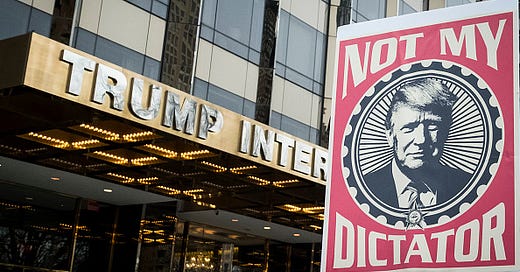How do strongmen rise?
A conversation with historian Ruth Ben-Ghiat on Trump's place in the authoritarian canon
Welcome to The.Ink, my newsletter about money and power, politics and culture. If you’re joining us for the first time, hello! Click the orange button below to get this in your inbox, free. Please consider becoming a paid subscriber to support this work.
It is tempting to think that Donald Trump erupted out of nowhere, like a volcano that everybody thoug…
Keep reading with a 7-day free trial
Subscribe to The.Ink to keep reading this post and get 7 days of free access to the full post archives.





